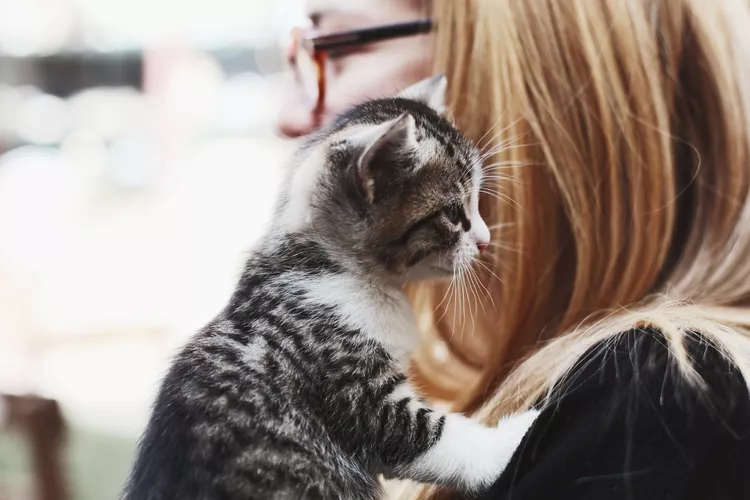- 01 of 06
Your Cat Wants You to Be Clean
Grooming keeps skin and fur healthy and clean. Cats spend a good portion of their awake time in some form of grooming behavior, so they may simply be looking out for you. And they may be hinting to you that you need to do a better job grooming yourself.
- 02 of 06
Your Cat is Following Mom's Example
Kittens begin to groom themselves as youngsters. If Mom is a neatnik, then chances are the babies will also grow up with clean "cattitudes." But Moms may pass on their grooming indifference to offspring. Mom cats also groom their babies to keep them clean, and social cats groom each other and share communal scent.
- 03 of 06
Your Cat is Stressed
Cats also use grooming to relieve stress. You could compare self-grooming for stress relief to a human getting a relaxing massage. Dogs are also known for overgrooming when they are stressed out. You can help alleviate your stressed-out kitty several ways, including aromatherapy.
- 04 of 06
Your Cat Likes Your Shampoo
If the cat suddenly starts grooming you out of the blue, it may be she likes the smell of your new shampoo or perfume. Or maybe she likes the new lotion you picked up at the store.
Continue to 5 of 6 below - 05 of 06
Your Cat is Hungry
Cats grooming you and eating your hair may be a behavior that stems from a nutritional deficit. If you are unsure if you are feeding your cat a sufficient diet, check with your veterinarian to see if it's time to upgrade their food.
- 06 of 06
Your Cat Sees You as Family
Cats groom other cats in their family group when they like each other and have friendly relationships. The licking also spreads scent, so the cats that sleep together and groom each other smell alike. This creates a sort of "family perfume" that identifies each other as safe and friendly.
How to Curb the Grooming
To stop overgrooming, you can offer your kitty a substitute such as a fuzzy stuffed toy, and shoo the cat away from your head to prevent being snatched bald. But in most cases, consider a cat grooming a human's hair to be a huge compliment and gesture of affection, sort of the kitty equivalent of a petting session. Don't worry, the cat won't expect you to become kitty beauticians with a lick and a promise. Petting will do.
Health Concerns
As you may expect, the potential for hairballs exists if your cat swallows long strands of human hair. If a cat seems to want to eat your hair, it's a good reason to go to the veterinarian for a check-up.




















